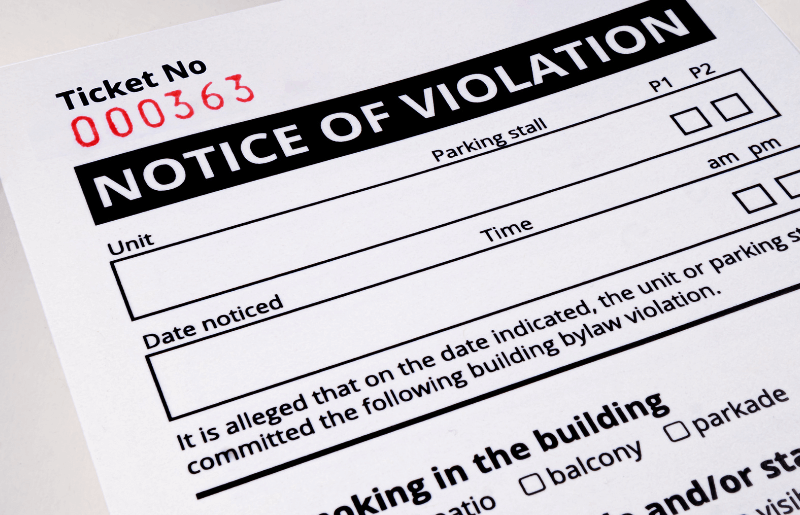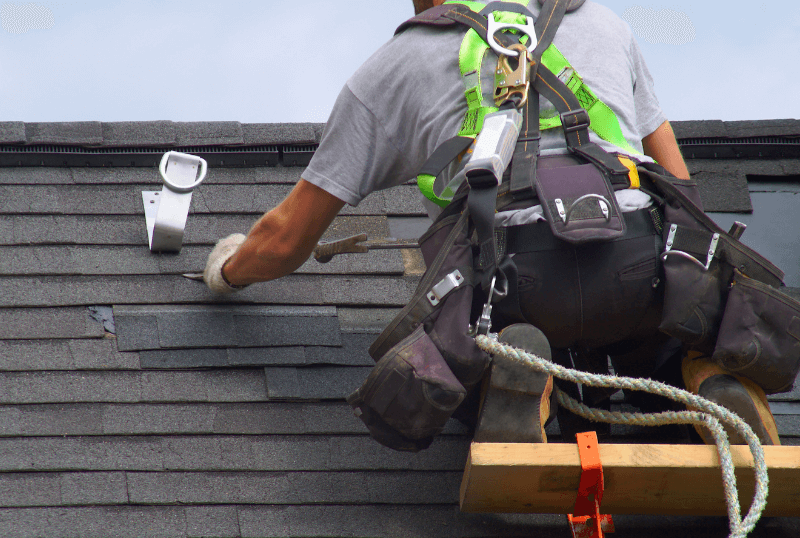Selling a house can be quite a process especially when you’re dealing with code violations. This guide is here to help simplify things for you, offering steps to navigate the world of real estate in such situations. We’ll delve into the details of home inspections, discuss repair options, and share tips on how to attract buyers even if your property has code violations. From understanding building codes to negotiating with cash buyers, we’ll equip you with the knowledge to get the offers and successfully sell your house in its current condition. Whether you reside in Houston, Arlington, or Dallas this guide is a resource for anyone looking to sell their home. Let’s embark on the journey of transforming your code-violation house into a sale.
What Are Code Violations?
Code violations occur when your property fails to meet the standards outlined by building codes. These regulations are designed to ensure that all residences adhere to safety and health requirements. Violations can vary from issues like ventilation or missing smoke detectors to more severe problems such, as water damage or electrical system malfunctions.Older houses are more prone to code violations because they might not meet standards. It’s important for homeowners to be aware of these issues since they can affect both the selling price and the attractiveness of the property to buyers. For example, many lenders may not approve loans for a property with code violations even if buyers are willing to make repairs post-sale. Therefore if you’re looking to sell your home fast in Houston it’s crucial to understand what code violations entail.

How To Check If A Property Has Code Violations
To check for any code violations on your property reach out to your municipality or code enforcement office. They can provide you with a history of any violations recorded for your property. If there are issues they may still be documented. Another effective way is to hire a home inspector who is trained to identify code violations that homeowners might overlook such as electrical system problems issues, with the water heater or missing handrails.
In areas, like Florida, it’s important to check for local regulations, such as the need for GFCI (Ground Fault Circuit Interrupter) outlets in certain parts of the house or the requirement for smoke alarms in designated spots. Other key areas to watch out for include the condition of your panel ensuring ventilation for exhaust fans and keeping an eye out for any signs of water damage.
It’s worth noting that even if your home was compliant with building codes when it was constructed, older homes may not meet standards. Upgrades or renovations could also potentially lead to code violations if they were done unpermitted or didn’t adhere to regulations. By being proactive in addressing these issues, you can avoid complications during the home selling process. Possibly negotiate a price with a buyer.
Another option is to seek guidance from a real estate agent or investor experienced in as-is sales. They can offer advice on dealing with properties that have code violations and might even present a cash offer for your home bypassing the need for lenders. By grasping these concepts you equip yourself with the knowledge needed to efficiently and quickly sell your home even if there are existing code violations in place.
Types of Code Violations
Before delving into the specifics of selling a property with code violations it is essential to grasp the types of code violations that could be relevant to your property. Code violations encompass a range. Are put in place to uphold the safety, welfare and visual appeal of a neighborhood. They are typically categorized as building code violations and housing code violations.
Building Code Violations
Building code infractions commonly arise during property renovations or construction carried out without the necessary permits or without adhering to approved plans. Some typical instances include:
- Unpermitted upgrades or renovations
- Addition of structures like decks or garages that have not undergone inspection and may not meet current structural integrity standards.
- Conversion of a space—such, as turning a garage into living quarters—without complying with necessary egress or insulation guidelines.
- Outdated electric panel or electrical system issues
- Older homes may have electrical panels that no longer adhere to current codes, which usually mandate panels capable of safely handling increased electrical loads.
- The lack of ground fault circuit interrupter (GFCI) outlets, in rooms exposed to moisture, like kitchens and bathrooms could cause a home inspection to not pass.
- Issues such as old wiring that could lead to fire risks or failure to meet electrical grounding standards.
- Plumbing inconsistencies
- Problems with plumbing, improper water heater installations, exhaust fans venting into the insufficient water supply or drainage systems can also arise.
- Plumbing work that raises safety concerns or the risk of water damage due to installation methods or nonstandard materials being used.
- Improper venting of exhaust fans
- When exhaust fans vent directly into a crawl space instead of outside the house it can result in moisture buildup and possible mold growth.
- The use of duct materials for exhaust fans may degrade over time and compromise the ventilation system’s integrity.
- Installing exhaust fans without backdraft dampers enables air to enter the home resulting in energy loss and the introduction of pollutants.
- Additionally failing to provide duct sizing for exhaust fans can lead to reduced efficiency and increased noise levels.
Housing Code Violations
Housing code violations, on the other hand, relate to maintaining the existing properties in a livable condition. These violations often surface during home inspections and can include:
- Not having smoke detectors or alarms where they are required
- Missing safety features such, as handrails
- Indications of water damage or structural problems
- Not following local regulations like needing GFCI outlets in specific areas
Recognizing and dealing with these typical code violations can assist homeowners in managing the sale of a property ‘as is’ ensuring a smoother transaction with potential buyers or investors who frequently say, “We buy houses in Arlington” or other locations.
Code Violation Process
The process for addressing code violations generally starts when a complaint is filed or during an inspection by the government that reveals noncompliance with the regulations. This procedure is usually overseen by code enforcement departments. Once a violation is identified the homeowner is issued a notice outlining the violation type and necessary corrective actions. The notice often includes a specified timeframe for rectifying the issue.
It’s vital to take code violation notices seriously. Neglecting them can result in fines, increased scrutiny, from authorities or even legal consequences. In some cases, serious violations may lead to the property being deemed unsafe for occupancy.
If a homeowner decides to address the violation they might need to get the permits and carry out the renovations or repairs. After completing the work a municipal inspector will come to check if the violation has been fixed properly. If not the homeowner may have to make changes.
On the side if the homeowner opts to sell the property ‘as ‘s they must inform potential buyers about the violation. This disclosure is often mandated by law. Can impact the home’s selling price. Real estate investors and cash buyers are often keen, on buying properties with code violations as they can fix them up and resell them for profit. Consequently, they may present a cash offer allowing the homeowner to sell quickly without dealing with repairs or renovations.

How Long Do You Have to Fix a Code Violation
The timeframe for addressing a code violation largely hinges on its severity and local regulations. Minor violations like missing handrails or smoke alarms typically come with a grace period of 30 to 60 days. However serious infractions such, as venting or significant water damage may require immediate action, sometimes within just a few days.
The violation notice should clearly state the timeframe that needs to be followed. If this information is unclear homeowners should reach out to their code enforcement department, for clarification. It’s crucial to address violations within the given timeframe to avoid facing fines and legal issues.
In cases where the required repairs are extensive and time-consuming, homeowners can ask for an extension. While its not guaranteed many municipalities are willing to grant extensions to homeowners who demonstrate efforts to rectify the violations. Remember, the primary objective of code enforcement is to ensure that housing is safe and habitable rather than punishing homeowners.
If a complete renovation is necessary to comply with codes selling the property to a real estate investor or cash buyer could be a solution. These buyers often acquire homes in their condition assuming responsibility for any code violations and offering a straightforward selling process.
What Happens If Your House Is Not Up To Code
Not meeting building codes can lead to challenges for homeowners. Violations are typically identified during home inspections conducted by either homeowners planning renovations or potential buyers during property sales.
If there are any violations of the rules the local government might send a notice asking the homeowner to fix any issues to meet the standards. Ignoring these problems could lead to fines or legal trouble. Importantly it could hinder the process of selling the house. Many lenders require that a property meets all standards before approving a loan making it difficult for potential buyers to get financing. This could limit the number of buyers making it harder to sell the house and possibly lowering its selling price.
Selling a home with violations, to a cash buyer like an investor in estate is one way around this issue. These buyers purchase properties in their condition. Take on the responsibility and cost of making them compliant with regulations. This can save homeowners from dealing with fixing violations themselves. May speed up the selling process.
Can You Sell a House with a Code Violation?
Yes, it is indeed possible to sell a home with code violations. However, this process can be more complicated than usual. When a house does not meet regulations homeowners usually have three choices:
- Fix the problems: Homeowners can hire professionals to carry out the needed repairs to bring the house up to code. Although this may require some investment it can boost the property’s value. Make it more appealing to buyers looking for move-in ready homes.
- Disclose the violations: Homeowners can opt to sell the house “as ‘s” meaning they inform buyers about the code violations and adjust the selling price accordingly. Cash buyers or real estate investors often show interest in properties as they see potential for renovations.
- Sell to a cash buyer: Selling to a real estate investor or cash buyer like Southern Hills Home Buyers allows homeowners to avoid addressing code violations. These buyers are typically more focused on the property’s value than its current condition.
It is important to be honest and transparent. Always disclose any known problems when presenting your home for sale in order to prevent issues down the road. Selling a property, with code violations may seem daunting. With a plan and patience, it is definitely manageable.

Conclusion
In summary, dealing with code violations in a house when navigating the real estate market doesn’t have to be a task. By knowing your choices and making informed decisions you can sell your home successfully in its current condition. Whether you decide to fix the issues disclose violations. Consider a cash offer to keep your focus on the end goal; a successful sale of your home. Through planning, transparency, and sometimes assistance, from real estate experts, like Southern Hills Home Buyers homeowners can turn their property’s challenges into opportunities effectively. Selling a house quickly with code violations is possible. This guide offers guidance to help you through the process.
